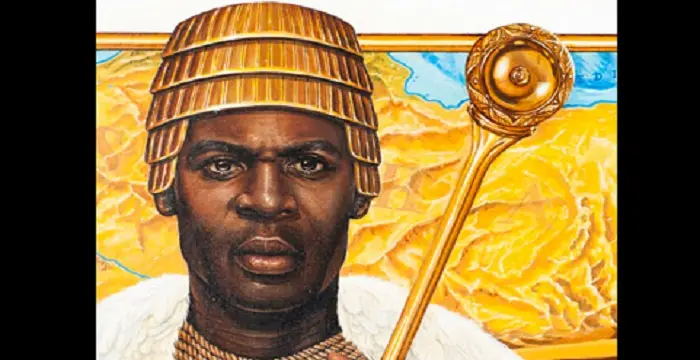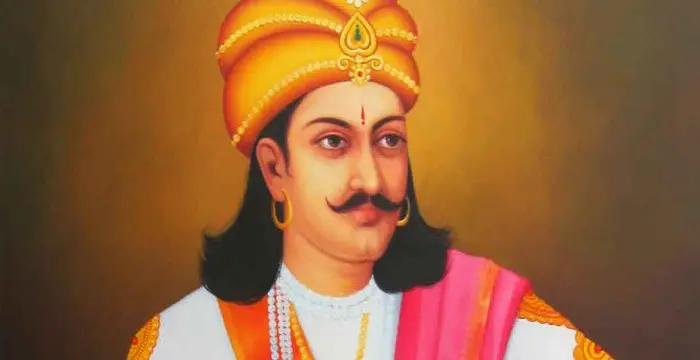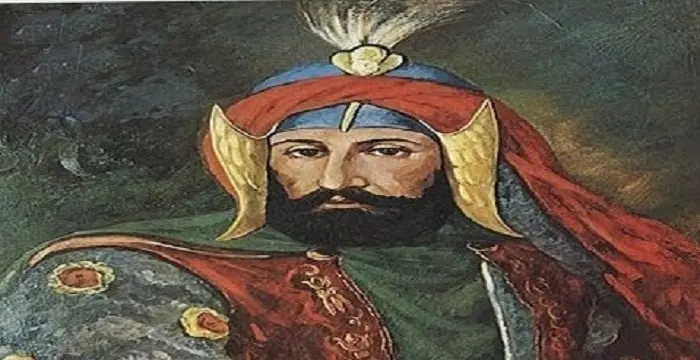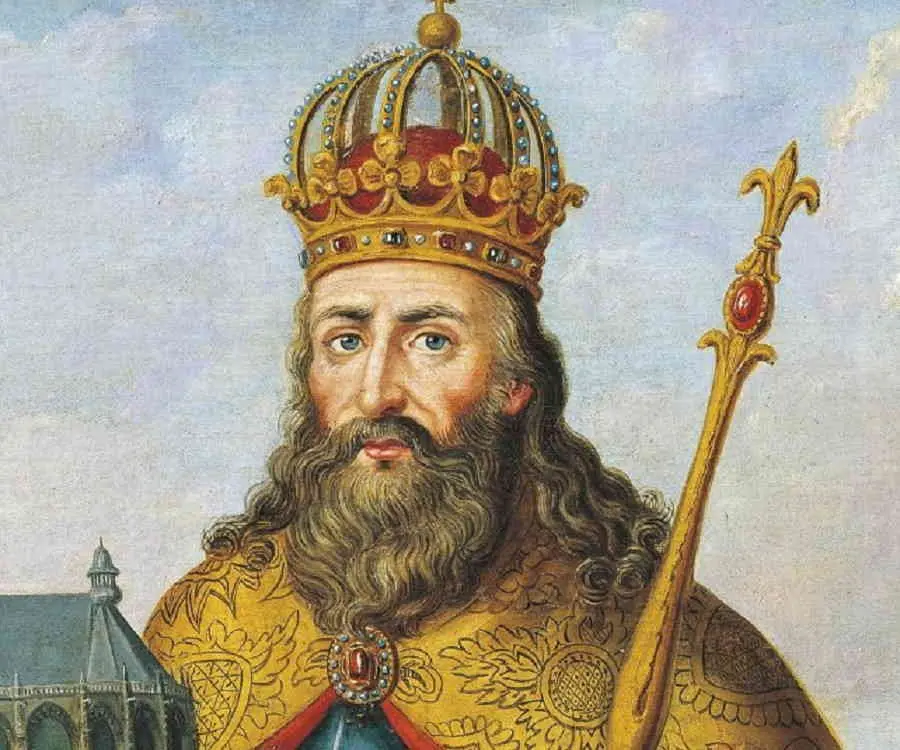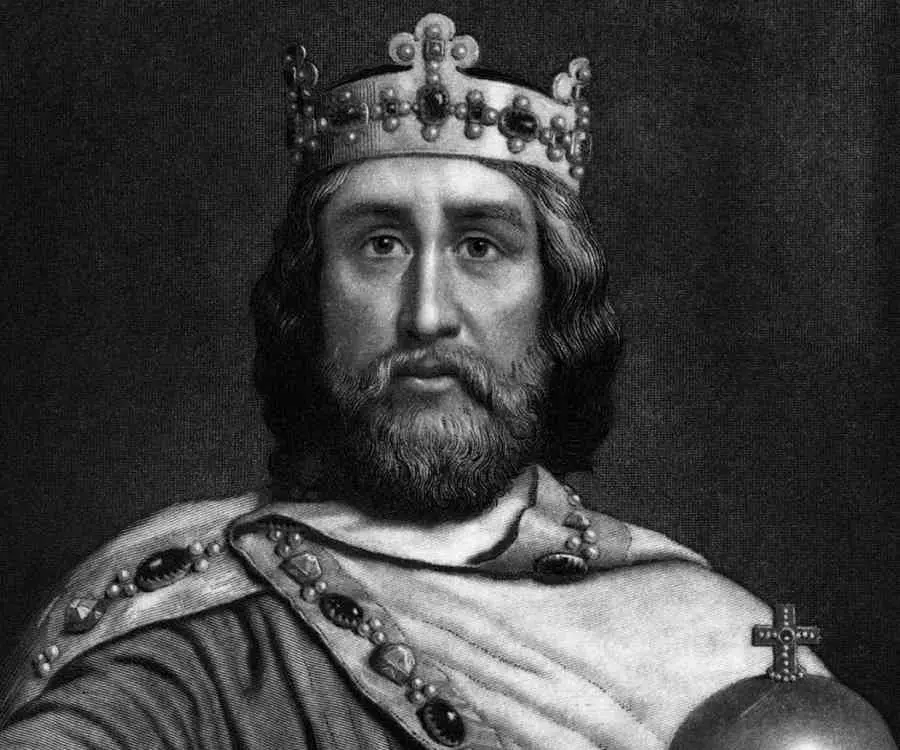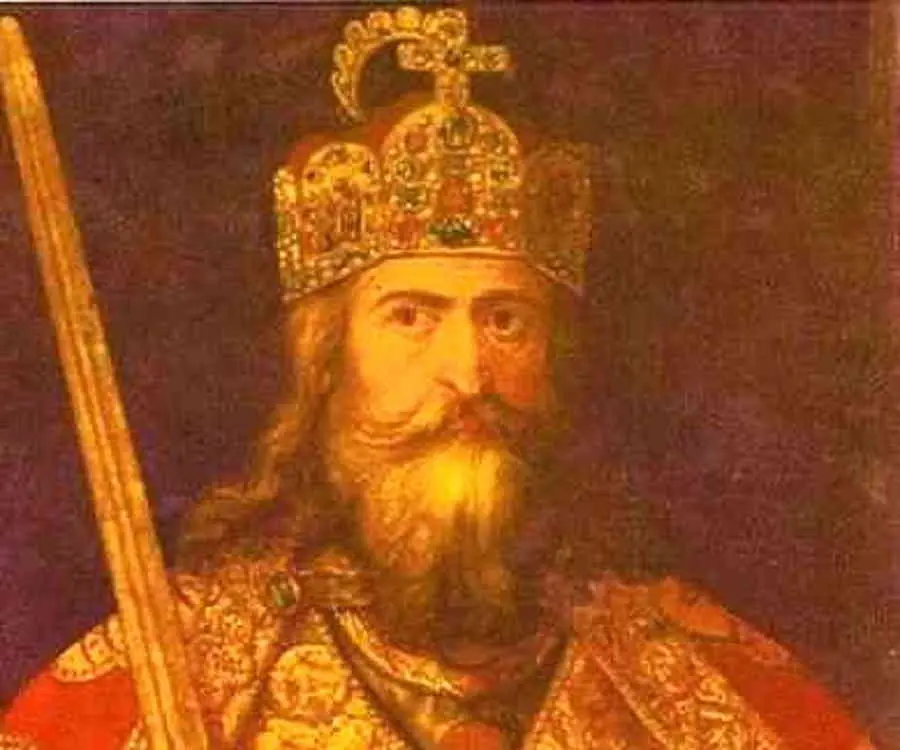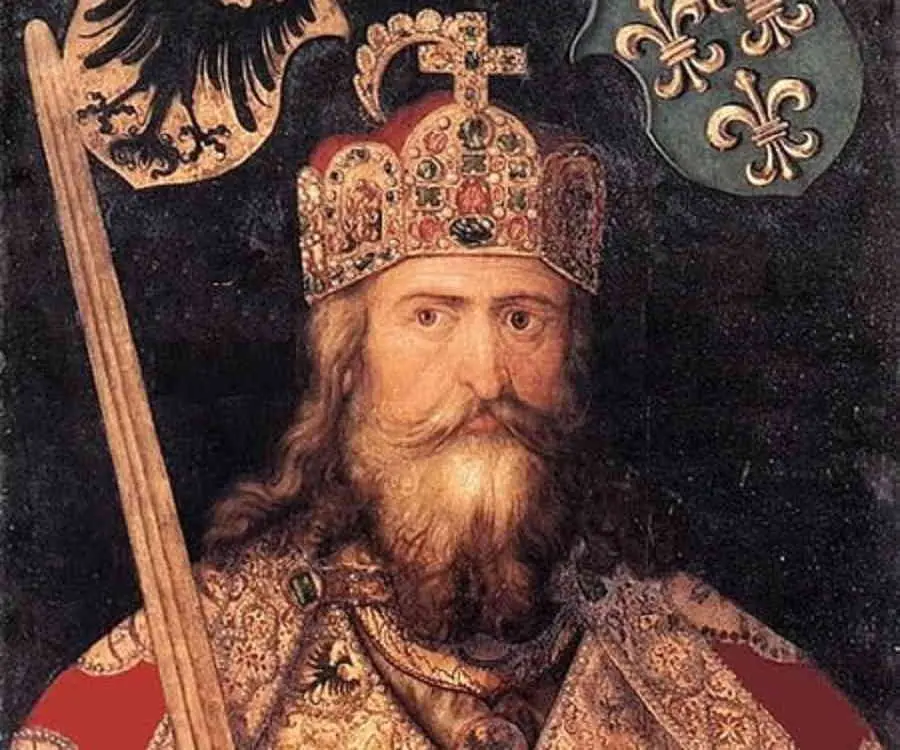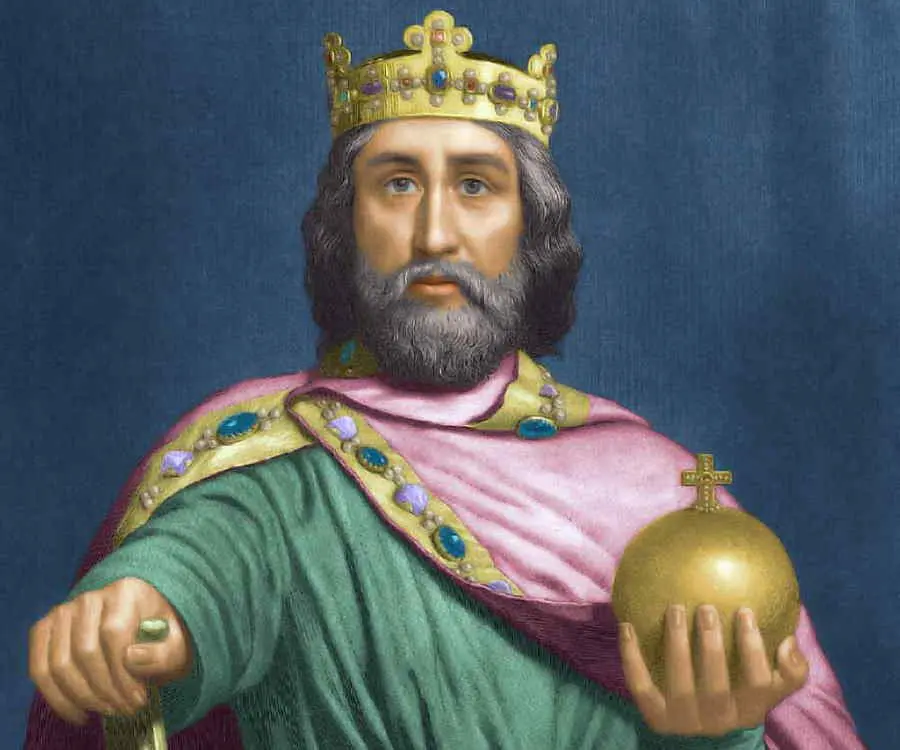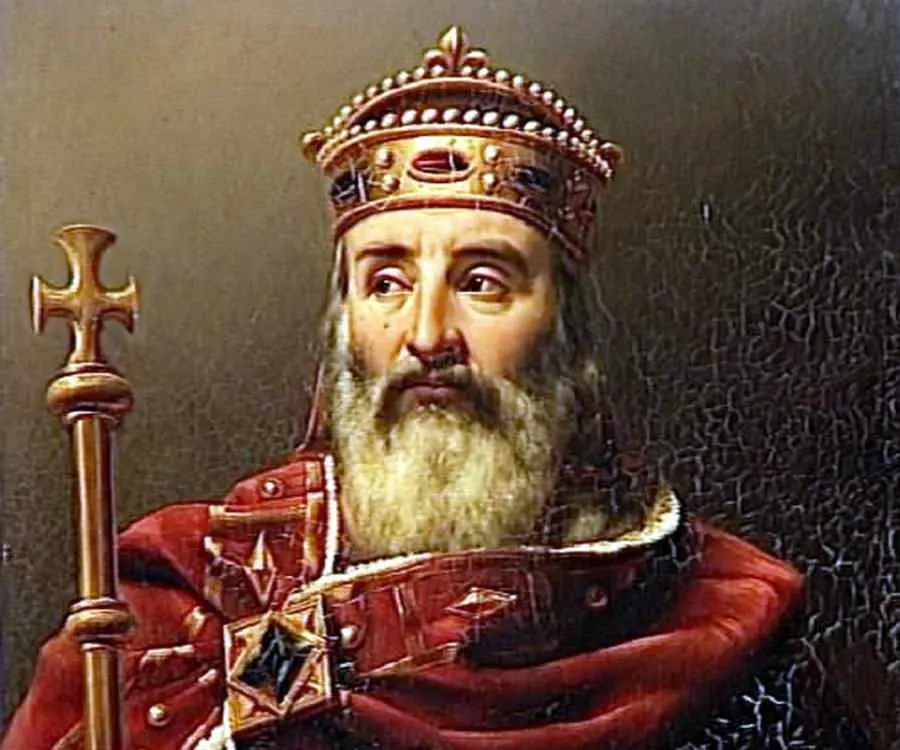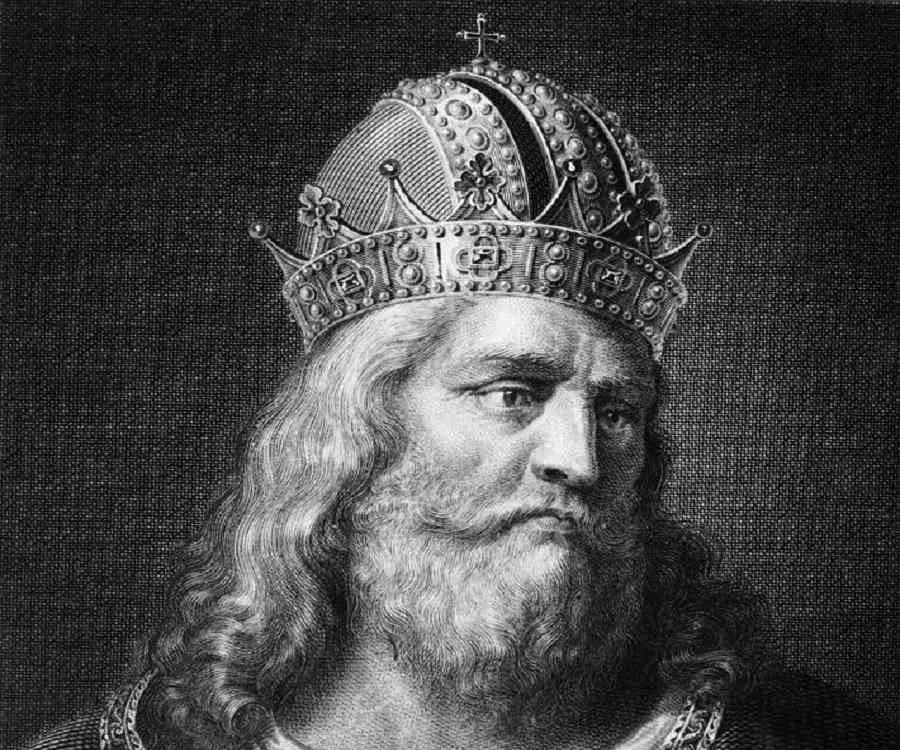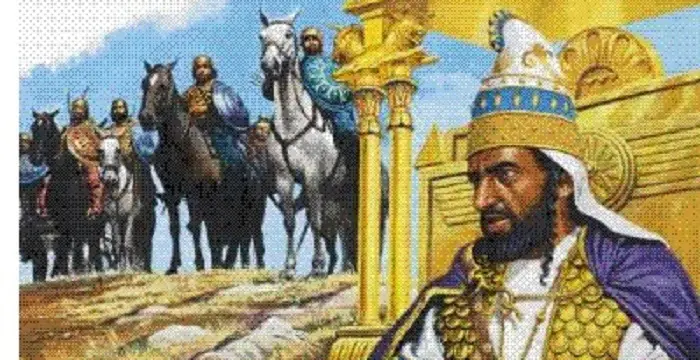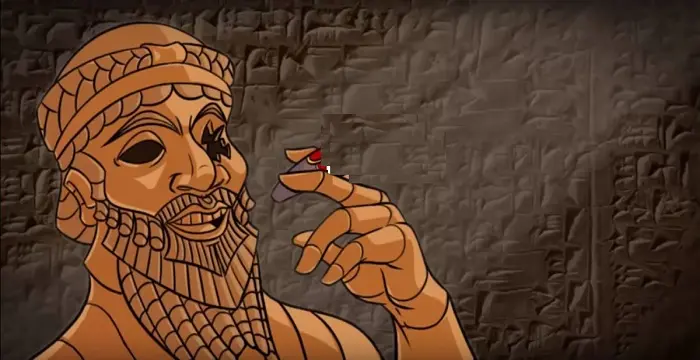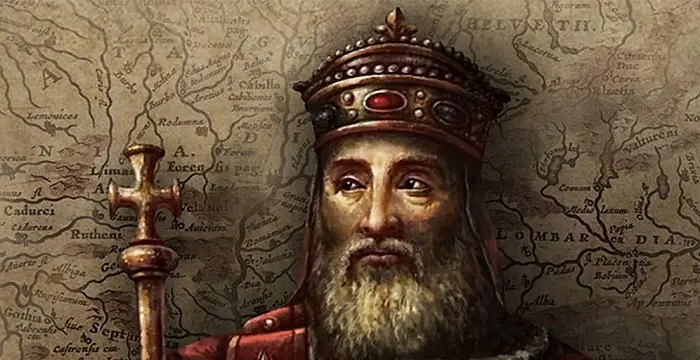
Charlemagne - Kings, Life Achievements and Family
Charlemagne's Personal Details
Charlemagne was a medieval ruler, who once ruled many parts of Western Europe
| Information | Detail |
|---|---|
| Birthday | April 2, 742 |
| Died on | January 28, 814 |
| Nationality | German |
| Famous | Historical Personalities, Emperors & Kings, Emperors, King of the Frank, Kings |
| Spouses | Luitgard (m. 794 AD), Desiderata of the Lombards (m. 770 AD–771 AD), Fastrada (m. 784 AD–794 AD), Hildegard of Savoy (m. 771 AD–783 AD) |
| Siblings | Carloman I, Gisela |
| Known as | Charles I |
| Childrens | Louis the Pious |
| Birth Place | Herstal |
| Religion | Roman Catholic |
| Gender | Male |
| Father | Pepin the Short |
| Mother | Bertrada of Laon |
| Sun Sign | Aries |
| Born in | Herstal |
| Famous as | King of the Frank |
| Died at Age | 71 |
// Famous Emperors
Sundiata Keita
Sundiata Keita was the founder of the Mali Empire in West Africa. This biography profiles his childhood, early life, struggles, founding of empire, rule, administration, achievements and also gives some fun facts.
Ashoka
Ashoka was the third emperor of the Mauryan Dynasty and ruled almost the entire Indian subcontinent. This biography profiles his childhood, life, reign, achievements and timeline
Murad IV
Murad IV was one of the mighty Sultans in the history of the Ottoman Empire. This biography profiles his childhood, family, accession, rule, administration and timeline.
Charlemagne's photo
Who is Charlemagne?
Charlemagne or Charles the Great (also called Charles I) was a medieval ruler - the emperor of most of the Western Europe. He was one of the most famous and powerful leaders to ever reign over Europe and is termed as ‘Father of Europe’ by some historians. During his reign, he brought into force many laws in order to keep the society well-organized and encourage learning. He built several churches and palaces, most of which are still standing but his main focus was to unite the Western Europe the way it had been during the time of the ancient Roman Empire. Before his death, he had already expanded his empire from modern-day France, Belgium, and the Netherlands to include Germany, Luxembourg, Switzerland, Austria, northern Spain, and northern Italy. The centre of his empire was Aachen, a city in western Germany near modern-day Belgium. It was here that he built his palace and a remarkable church which is one of the most important historic buildings in the world. By the time Charlemagne died, his Frankish empire was as big as the Byzantine Empire and had become the largest empire in Europe since that of the ancient Romans.
Childhood & Early Life
He was born to the King of the Franks, Pepin the Short and his wife Leutberga. His parents were not married at the time of his birth and his father was the first of the Carolingians to be the king.
In 753, when he was a child, Pope Stephen II requested his father, Pepin the Short to provide military assistance against the Lombards. Following the victory over Lombards, his father was given the kingship over Franks and in the following year, he was crowned as the king.
In 756, his father Pepin the Short again offered military assistance to Pope Stephen II against the Lombards and took away Ravenna from them which they had captured from the Byzantines.
In 760, he assisted his father in his the military efforts to triumph over Aquitaine which was the land in the south of the Loir River that used to come under Rome.
In 768, the death of his father Pepin the Short was followed by the division of his kingdom among him and his younger brother Carloman. The two brothers detested each other and a struggle ensued over the shared possessions.
In 771, his brother died unexpectedly, leaving him as the one and only leader of the entire kingdom. Following his brother’s death, he united the whole Frankish empire into one. There were many rumors regarding his involvement in his brother’s death, but he emerged out of all suspicions nonetheless.
Accession & Reign
In 774, on Pope Adrian I’s request for help, he conquered Lombardy after taking besieging Pavia. Soon he was crowned the King of the Lombards in Pavia where he vowed to protect the Papal lands.
In 778, the battle of Roncevaux Pass took place in which commander of the rear guard of his army, Roland was defeated by the Basques. His defeat was compiled in the form of an epic literature ‘Song of Roland’ that consists of 4000 lines and is one of the oldest surviving works in French literature.
In 781, he crowned his two younger sons as kings. The elder son, Carloman, was made the king of Italy and the younger one, Louis, was given the kingship over Aquitaine.
In 782, he ordered the execution of 4500 Saxon prisoners of war at Verden in a day, in response to the attacks by the Saxon leader Widukind. It was the only unlawful murder which he carried out during his reign.
In 789, he turned to Bavaria and deposed the ruler. He forced him to renounce any claim to Bavaria in 794 and divided Bavaria into Frankish counties.
In 800, he reached the zenith of his political power when he was crowned as Emperor by Pope Leo III.
In 813, he crowned his only surviving son, Louis, after the death of his other two sons. Louis later came to be known as ‘the Pious’ and was the co-emperor till his father’s death.
Major Battles
In 775, he attacked a Germanic tribe Saxon who threatened the north-eastern frontiers of his new kingdom. In the same year, the Duke of Hrodgaud of Friuli rebelled but was defeated by him. Thereafter, the Duke of Spoleto signed a treaty with him and gave him the full power over Northern Italy.
In 783, he initiated a three year campaign to conquer Saxony. Soon after, he triumphed over Saxons and enforced new set of rules to carry out proper administration of the newly conquered territories.
During 791-96, he conquered the empire of the Avars and added them to his own kingdom.
Personal Life & Legacy
In 768, he formed a relationship with Himiltrude and she became his concubine. She remained unknown for most of the years. However, the couple had two children- a daughter, Amaudru and a son, Pippin the Hunchback.
In 770, he married a Lombard princess Desiderata, daughter of King Desiderius, to conspire against his own brother Carloman by forming a Frankish-Lombard alliance. Thereafter, he disclaimed her as his wife.
In 771, he married Hildegard of Vinzgouw. This matrimonial alliance produced nine children namely, Charles the Younger, Carloman (Pippin), Adalhaid, Rotrude, Louis, Lothair, Bertha, Gisela, and Hildegarde.
In 773, he was in concubinage with Gersuinda and had a son from her named Adaltrude. This relationship was a known one unlike his first concubinage.
In 774, a daughter named Ruodhaid was born out of his relationship with his concubine Madelgard.
In 784, he married Fastrada, an East Frankish noblewoman. As his wife, she became the Queen of the Franks. This wedlock produced two daughters named Theodrada and Hiltrude.
In 794, he married Luitgard, the daughter of an Alamannian count. She did not have any children with the king and died of unknown causes. In the same year, he started living with his third concubine, Amaltrude of Vienne, with whom he had a daughter, Alpaida.
In 800, he went in to a fourth concubinage with Regina. The couple had two sons namely Drogo and Hugh, both who on distinguished posts.
In 804, he went into a relationship with his fifth concubine, Ethelind. The couple had two children, Richbod and Theodoric.
On January 28, 814, he died because of pleurisy combined with severe depression and was buried in Aachen Cathedral of Roman Catholic Church in modern Germany.
In 1949, the city of Aachen introduced an international prize called ‘Karlspreis der Stadt Aachen’ in his honor. It was given annually to meritorious candidate who encouraged western unity through creative pursuits.
Indian art form Chavittu Nadakam (Malayalam) has incorporated a play called ‘Carelman Charitham’ based on his life events.
The heavy metal in Christopher Lee’s Symphonic Metal Concept album, ‘Charlemagne: By the Sword and the Cross’ and its follow-up, ‘Charlemagne: The Omens of Death’ feature his life events.
Trivia
He restored much of the unity of the old Roman Empire and paved the way for the development of modern Europe.
// Famous Kings
Sundiata Keita
Sundiata Keita was the founder of the Mali Empire in West Africa. This biography profiles his childhood, early life, struggles, founding of empire, rule, administration, achievements and also gives some fun facts.
Ashoka
Ashoka was the third emperor of the Mauryan Dynasty and ruled almost the entire Indian subcontinent. This biography profiles his childhood, life, reign, achievements and timeline
Murad IV
Murad IV was one of the mighty Sultans in the history of the Ottoman Empire. This biography profiles his childhood, family, accession, rule, administration and timeline.
Charlemagne biography timelines
- // 2nd Apr 742He was born to the King of the Franks, Pepin the Short and his wife Leutberga. His parents were not married at the time of his birth and his father was the first of the Carolingians to be the king.
- // 753In 753, when he was a child, Pope Stephen II requested his father, Pepin the Short to provide military assistance against the Lombards. Following the victory over Lombards, his father was given the kingship over Franks and in the following year, he was crowned as the king.
- // 756In 756, his father Pepin the Short again offered military assistance to Pope Stephen II against the Lombards and took away Ravenna from them which they had captured from the Byzantines.
- // 760In 760, he assisted his father in his the military efforts to triumph over Aquitaine which was the land in the south of the Loir River that used to come under Rome.
- // 768In 768, the death of his father Pepin the Short was followed by the division of his kingdom among him and his younger brother Carloman. The two brothers detested each other and a struggle ensued over the shared possessions.
- // 768In 768, he formed a relationship with Himiltrude and she became his concubine. She remained unknown for most of the years. However, the couple had two children- a daughter, Amaudru and a son, Pippin the Hunchback.
- // 770In 770, he married a Lombard princess Desiderata, daughter of King Desiderius, to conspire against his own brother Carloman by forming a Frankish-Lombard alliance. Thereafter, he disclaimed her as his wife.
- // 771In 771, his brother died unexpectedly, leaving him as the one and only leader of the entire kingdom. Following his brother’s death, he united the whole Frankish empire into one. There were many rumors regarding his involvement in his brother’s death, but he emerged out of all suspicions nonetheless.
- // 771In 771, he married Hildegard of Vinzgouw. This matrimonial alliance produced nine children namely, Charles the Younger, Carloman (Pippin), Adalhaid, Rotrude, Louis, Lothair, Bertha, Gisela, and Hildegarde.
- // 774In 774, on Pope Adrian I’s request for help, he conquered Lombardy after taking besieging Pavia. Soon he was crowned the King of the Lombards in Pavia where he vowed to protect the Papal lands.
- // 774In 774, a daughter named Ruodhaid was born out of his relationship with his concubine Madelgard.
- // 775In 775, he attacked a Germanic tribe Saxon who threatened the north-eastern frontiers of his new kingdom. In the same year, the Duke of Hrodgaud of Friuli rebelled but was defeated by him. Thereafter, the Duke of Spoleto signed a treaty with him and gave him the full power over Northern Italy.
- // 778In 778, the battle of Roncevaux Pass took place in which commander of the rear guard of his army, Roland was defeated by the Basques. His defeat was compiled in the form of an epic literature ‘Song of Roland’ that consists of 4000 lines and is one of the oldest surviving works in French literature.
- // 781In 781, he crowned his two younger sons as kings. The elder son, Carloman, was made the king of Italy and the younger one, Louis, was given the kingship over Aquitaine.
- // 782In 782, he ordered the execution of 4500 Saxon prisoners of war at Verden in a day, in response to the attacks by the Saxon leader Widukind. It was the only unlawful murder which he carried out during his reign.
- // 783In 783, he initiated a three year campaign to conquer Saxony. Soon after, he triumphed over Saxons and enforced new set of rules to carry out proper administration of the newly conquered territories.
- // 784In 784, he married Fastrada, an East Frankish noblewoman. As his wife, she became the Queen of the Franks. This wedlock produced two daughters named Theodrada and Hiltrude.
- // 789 To 794In 789, he turned to Bavaria and deposed the ruler. He forced him to renounce any claim to Bavaria in 794 and divided Bavaria into Frankish counties.
- // 791 To 796During 791-96, he conquered the empire of the Avars and added them to his own kingdom.
- // 794In 794, he married Luitgard, the daughter of an Alamannian count. She did not have any children with the king and died of unknown causes. In the same year, he started living with his third concubine, Amaltrude of Vienne, with whom he had a daughter, Alpaida.
- // 800In 800, he reached the zenith of his political power when he was crowned as Emperor by Pope Leo III.
- // 800In 800, he went in to a fourth concubinage with Regina. The couple had two sons namely Drogo and Hugh, both who on distinguished posts.
- // 804In 804, he went into a relationship with his fifth concubine, Ethelind. The couple had two children, Richbod and Theodoric.
- // 813In 813, he crowned his only surviving son, Louis, after the death of his other two sons. Louis later came to be known as ‘the Pious’ and was the co-emperor till his father’s death.
- // 28th Jan 814On January 28, 814, he died because of pleurisy combined with severe depression and was buried in Aachen Cathedral of Roman Catholic Church in modern Germany.
- // 1949In 1949, the city of Aachen introduced an international prize called ‘Karlspreis der Stadt Aachen’ in his honor. It was given annually to meritorious candidate who encouraged western unity through creative pursuits.
// Famous Emperors & Kings
Sundiata Keita
Sundiata Keita was the founder of the Mali Empire in West Africa. This biography profiles his childhood, early life, struggles, founding of empire, rule, administration, achievements and also gives some fun facts.
Ashoka
Ashoka was the third emperor of the Mauryan Dynasty and ruled almost the entire Indian subcontinent. This biography profiles his childhood, life, reign, achievements and timeline
Murad IV
Murad IV was one of the mighty Sultans in the history of the Ottoman Empire. This biography profiles his childhood, family, accession, rule, administration and timeline.
Xerxes I
Xerxes I (Xerxes the Great) was the fourth and the most famous king of the Archaemenid dynasty of Persia. This biography profiles his childhood, family, personal life, life history, achievements, campaigns, administration, death and other facts.
Sargon of Akkad
Sargon of Akkad, also called ‘Sargon the Great’, ‘Sarru-Kan’ and ‘Shar-Gani-Sharri’, was the founder and first king of the Akkadian Empire. This biography profiles his childhood, life, rule, administration, timeline, and gives some fun facts.
Abdullah of Saudi Arabia
Abdullah bin Abdulaziz Al Saud was the King of Saudi Arabia from 2005 to 2015 and the third wealthiest head of state in the world. Find more facts about his life, childhood and timeline.
Charlemagne's FAQ
What is Charlemagne birthday?
Charlemagne was born at 0742-04-02
When was Charlemagne died?
Charlemagne was died at 0814-01-28
Where was Charlemagne died?
Charlemagne was died in Aachen
Which age was Charlemagne died?
Charlemagne was died at age 71
Where is Charlemagne's birth place?
Charlemagne was born in Herstal
What is Charlemagne nationalities?
Charlemagne's nationalities is German
Who is Charlemagne spouses?
Charlemagne's spouses is Luitgard (m. 794 AD), Desiderata of the Lombards (m. 770 AD–771 AD), Fastrada (m. 784 AD–794 AD), Hildegard of Savoy (m. 771 AD–783 AD)
Who is Charlemagne siblings?
Charlemagne's siblings is Carloman I, Gisela
Who is Charlemagne childrens?
Charlemagne's childrens is Louis the Pious
What is Charlemagne's religion?
Charlemagne's religion is Roman Catholic
Who is Charlemagne's father?
Charlemagne's father is Pepin the Short
Who is Charlemagne's mother?
Charlemagne's mother is Bertrada of Laon
What is Charlemagne's sun sign?
Charlemagne is Aries
How famous is Charlemagne?
Charlemagne is famouse as King of the Frank
